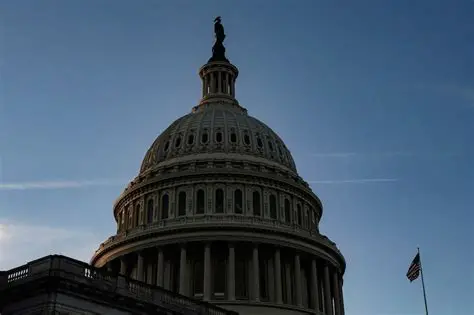(Reuters) – The U.S. Senate will vote again on Friday on dueling Democratic and Republican plans to end a government shutdown now entering its third day, though there is no sign that either plan will win passage.
Lawmakers do not appear to have made any headway toward a deal that would allow them to resume government funding, and Democrats and Republicans have spent the past several days blaming each other for their failure to keep the government funded beyond October 1, the start of the fiscal year.
Democrats say any funding package must also expand pandemic-era healthcare subsidies due to expire at the end of December, while Republicans say that issue should be dealt with separately.
U.S. President Donald Trump, meanwhile, has frozen billions of dollars earmarked for Democratic-leaning states and threatened to fire more federal workers, on top of the 300,000 he will have forced out by the end of the year. His budget chief, Russ Vought, has asked federal agencies to draw up plans to lay off those whose work is not aligned with the administration’s priorities.
The shutdown, the 15th since 1981, has suspended scientific research, economic data reports, financial regulation, and a wide range of other activities. Pay has been suspended for roughly 2 million federal workers, though troops, airport security screeners, and others deemed “essential” must still report to work.
A prolonged shutdown could disrupt air travel, food aid for millions of Americans, and force federal courts to close. Federal workers would miss their first paycheck in mid-October if the standoff is not resolved by then.
The longest shutdown lasted 35 days in 2018-2019, during Trump’s first term in office.
The Senate has three times already rejected a Republican plan, which would fund the government through November 21, and a Democratic alternative that would also bolster the expiring health subsidies. The chamber will vote on both of those plans again on Friday.
Republicans control both chambers of Congress, but they need at least seven Democratic votes to advance spending legislation in the Senate.
A group of senators from both parties say they have been exploring a compromise. But some Democrats say they do not trust Republicans to honor any agreement that would first reopen the government and then tackle the healthcare subsidies, which were passed as part of a 2021 Democratic COVID relief package and now help 24 million Americans pay for coverage.



















